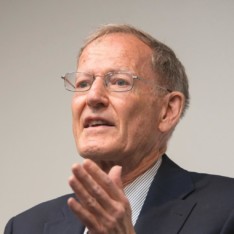Viruses, Lockdowns, and Biomic Learning

In all the annals of Covid, Taiwan remains an outlier. Out of a population of 24 million, and an extraordinary population density of 1,739 per square mile, it registered only 573 “cases.”
At just one test per 100,000 of population, it did the lowest rate of testing in the industrial world, restricting tests to those with symptoms. It imposed the lowest “stringency” of government policy (as measured by one of the world’s most limited lockdowns, far less severe even than Sweden’s, with scant closing of schools, restriction of travel, or banning of gatherings and other events).
Yet Taiwan experienced only seven total deaths, the lowest level of per-capita deaths among all populous countries.
By comparison, the Diamond Princess cruise ship, with 3,700 aboard and in quarantine, registered 10 deaths. The cruise ship group was dominantly in the vulnerable group of over 70 years old. But Taiwan boasts a life expectancy of over 80 years and saw it increase by the usual annual rate in 2020.
To discuss such enigmas, I yesterday visited Jeffrey Tucker, the editorial director at AIER, the American Institute of Economic Research, and author of a superb new book on the crisis, Liberty or Lockdown.
Near me in Great Barrington, Massachusetts, AIER resides in a castle on a hill overlooking the town and the world.
Apart from the Discovery Institute in Seattle, which I co-founded with Bruce Chapman, AIER is increasingly my institutional home.
You may know Great Barrington through the Great Barrington Declaration from October 4 by Dr. Martin Kulldorff of Harvard, Dr. Sunetra Gupta of Oxford University, and Dr. Jay Bhattacharya of Stanford, all globally eminent authorities on epidemics and infectious diseases.
Signing their joint declaration were hundreds of other medical scholars from around the world and tens of thousands of lay people.
The declaration concluded:
“Adopting measures to protect the vulnerable should be the central aim of public health responses to COVID-19… nursing homes should use staff with acquired immunity and perform frequent PCR testing of other staff and all visitors… Retired people living at home should have groceries and other essentials delivered… When possible, they should meet family members outside rather than inside. A comprehensive and detailed list of measures… is well within the scope and capability of public health professionals.”
“Those who are not vulnerable should immediately be allowed to resume life as normal. Simple hygiene measures, such as hand washing and staying home when sick should be practiced by everyone to reduce the herd immunity threshold. Schools and universities should be open for in-person teaching. Extracurricular activities, such as sports, should be resumed. Young low-risk adults should work normally, rather than from home. Restaurants and other businesses should open. Arts, music, sport and other cultural activities should resume. People who are more at risk may participate if they wish, while society as a whole enjoys the protection conferred upon the vulnerable by those who have built up herd immunity.”
Amazingly, this common-sense statement aroused huge official resistance. Even the Town Council of Great Barrington itself indignantly disavowed any connection to it. The eminent epidemiologists were said to be part of a “death cult.” AIER was dismissed as a fringe operation.
Jeffrey Tucker points to the Taiwan story as crucial and revelatory. The basic facts are charted and analyzed by AIER scholar Amelia Janaskie. While most analysts explained Taiwan’s exemption from Covid by citing various foresighted government and public health policies, Janaskie concluded that government policy had almost nothing to do with it.
From the AIER point of view, honed by Sunetra Gupta of Oxford and expounded by Tucker, Taiwan’s example shows that the spread of Covid is largely explained by Information Theory.
The reason Taiwan suffered so little from the epidemic was its previous ordeal at the epicenter of the more deadly coronavirus SARS-CoV-1 in 2003, when Taiwan led the world in per capita deaths. This ordeal trained not chiefly the government officials now claiming credit for mastering Covid, but the immune systems of the Taiwanese. Their antibodies and T-cells were ready for Covid not because of policy choices but because of biological learning processes.
Sunetra Gupta believes that the huge growth of world population during the twentieth century was largely an effect of globalization imparting similar biological learning processes on human immune systems. For the first time in human history, viruses propagated everywhere. As a result, human immune systems everywhere were trained in suppressing them. Through the cosmopolitan spread of immune system learning, the world escaped a grim perennial cycle of devastating plagues and extinctions striking successively in unprepared localities.
From the point of view of information theory, immune systems experienced a learning process comparable to the learning process that produces economic growth. Just as global trade conveyed new technologies and industrial practices to countries around the world, thus fostering competition and spurring growth, the spread of global tourism, immigration, and air traffic educated immune systems everywhere.
Wealth is knowledge, growth is learning, and money is time. This is my information theory mantra. These rules apply not only to economies everywhere but also to immune systems and their memories. Globalization is the paramount learning process across the board.
We conquered diseases the same way we overcame parochial economic stagnation—by competition and trade, not by protection and quarantine. We won through ubiquitous exposure to learning experiences, not by retreat and isolation from them.
We overcame the billions of potentially deadly viruses not chiefly by vaccinations and new drugs and hygienic practices, but by spreading diseases more widely. With ever expanding exchanges and mutual experiences among the tribes of the world, we educated their immune systems and biomes.
Gupta comes from Calcutta, where viral threats are largely confined to the lowest castes, which gain herd immunity for the rest of Indian society to an unfathomable array of diseases.
Now public health experts and therapeutic states entertain the idea that they can fight disease by quarantining the healthy as new untouchables, locking down our economies, and summoning vaccines for every new threat. But viruses are an intrinsic part of the human biome. The only reason we populate the globe in billions is that our systems learned how to deal with them.
Sunetra Gupta now fears that we are forgetting the role of globalization and learning in the growth not just of world commerce but of the world’s population itself. The lockdowns and other anti-globalization and isolationist movements pose the threat of a new dark age for human immune systems and economies alike.
The ultimate scarcity is time. Contriving remedies for every disease is a fool’s errand that would doom the human race to an endless waste of time and resources in a whack-a-mole frenzy beating down diseases that always crop up in unexpected times and places.
But billions of human immune systems across the planet in an unfathomable process of biomic learning are constantly surveying the viral landscape. They are maintaining an eternal vigil against high entropy threats, while human minds uncover new economic opportunities in a spiral of human progress of globally interacting bodies and souls.
The best testimony to the success of these mutual learning processes is not only the amazing story of Taiwan. It is our very presence on the planet today, some 8 billion learning systems strong, distributed as widely as human minds and interacting everywhere to ensure the survival of learning and growth.












